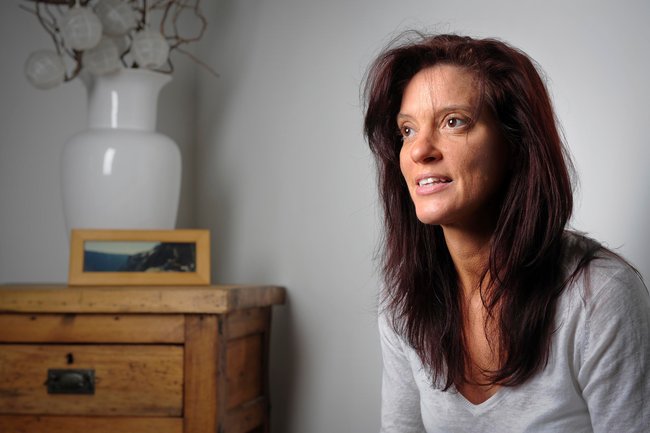

The woman who first exposed Lance Armstrong’s illegal drug use has made further claims of complicity between cycling’s ruling body and the sport’s doping culture.
Emma O’Reilly’s evidence highlights the need for Armstrong to give evidence to the UCI’s investigation into doping.
O’Reilly, who was a soigneur in Armstrong’s US Postal team, reveals two key incidents that allegedly show that UCI officials were involved in covering up doping.
In the first incident, O’Reilly claims Armstrong’s team boss, Johan Bruyneel, was alerted to a problem with the rider’s drug test through a phone call from doping control. In what would have been a serious breach of UCI protocol, this call was made by a UCI doping official using the mobile telephone of another US Postal rider.
Secondly, she claims to have witnessed Armstrong telephone the then UCI president, Hein Verbruggen, to demand an ‘over-zealous’ race commissar should be banned from officiating at future races.
O’Reilly believes the newly formed Cycling Independent Reform Commission (CIRC) must call Armstrong and Bruyneel as witnesses if the three-man panel wants to understand fully the role the world governing body might have played in allowing a culture of doping to exist.
New UCI president Brian Cookson has said ‘the allegations that the UCI has been involved in wrong-doing in the past’ will be central to the commission’s inquiry. This week a statement issued by CIRC added that an ‘investigation into UCI past wrongdoings will also be a core part of the CIRC mandate’.
O’Reilly’s allegations would suggest certain UCI officials have a case to answer.
The CIRC has offered anonymity, amnesties and a reduction of bans in an attempt to encourage former dopers to testify but fears remain that not enough is being done to ensure Armstrong and Bruyneel are brought to the table.
Now, she can reveal in more detail the events she claims enabled Armstrong to escape punishment for a positive drugs test.
‘I’m told Johan got a call from a commissar on a US Postal rider’s phone, asking him to come down to talk about Lance,’ explained O’Reilly.
Armstrong used cortisone during the Route du Sud stage race. He used the banned drug to lose weight and boost his performance on the bike.
At the pre-Tour doping press conference the teams were told testers now had a way of detecting cortisone but Armstrong assumed he would be in the clear; that enough time had elapsed so nothing would show in his urine.
After winning the opening stage of the Tour — an individual time trial — Armstrong was called upon to provide samples and it was here that the cortisone was spotted.
Had the correct protocol been followed, the president of the panel of commissars at the race would have asked if the team and rider wanted the B sample tested before the case was then handed to the national federation — in Armstrong’s case, USA Cycling.
Armstrong claimed in an interview last November, that Verbruggen contacted him separately and urged him to fix the problem because another big drugs scandal would have been ‘the knockout punch for our sport’.
The solution from the Armstrong camp was to produce a back-dated prescription to explain the drug’s presence in his system. Verbruggen has denied Armstrong’s claims, insisting the American is lying.
But he did admit that he ‘might’ have had a conversation with Armstrong with regard to the test and earlier this month went a stage further by saying: ‘I might have told him the UCI needs a prescription but I am sure that was handled by our anti-doping department, not me.’
Verbruggen, who was unavailable for comment on Thursday, has also denied having what might be considered an inappropriate relationship with the sport’s top riders.
But, for the first time, O’Reilly reveals a conversation Armstrong had with Verbruggen after the American had won a race in Germany in 1998.
‘We were in the team car at the end of the race,’ O’Reilly recalls. ‘I was about to drive Lance and one of the other riders to the airport. Lance called Hein and said words to the effect of, “That race commissar, I never want to see that guy again”.
‘And he was being serious. And you could sense that Hein was taking it seriously, too. It wasn’t a friendly chat. It was a serious conversation, and the impression I got was that Lance was being listened to. I said there’s no way you should be able to do that.’
O’Reilly discussed this incident with Armstrong before giving the details to the media. She also has diaries which record her time at US Postal. ‘Lance remembers the incident just as I do,’ she says.
O’Reilly, now 43 and running a sports injury clinic in Cheshire, is motivated simply by her concerns for ‘the welfare of the riders’.
That was also what prompted her to blow the whistle on Armstrong in the first place back in 2004.
The US Anti-Doping Agency brought down Armstrong and at this moment CEO Travis Tygart holds the key to whether the sport’s most disgraced rider takes the stand. As the man who punished Armstrong with a life ban from sport, he is the only one in a position to assist the UCI in agreeing to a reduction of Armstrong’s suspension should CIRC consider it appropriate.
USADA’s own attempts to get Armstrong to testify broke down because it would have required him to waive all his constitutional rights. Verbruggen, meanwhile, has said he will demand indemnity before he speaks to the UCI commission.
Whatever legal bartering is required should take place as O’Reilly’s new revelations point to an urgent need for all parties to come clean, because only then might cycling move forward.
In response to O’Reilly’s allegations, a spokesman for the UCI, of which Verbruggen is honorary president, stated that ‘this is a matter for CIRC’.

